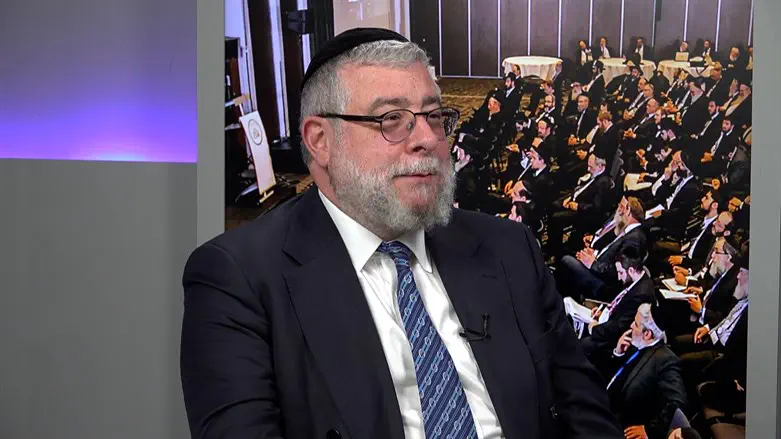
In this week’s Parsha, Ki Tese, the Torah gives us rules on how to treat an enemy. “When you go out to war against your enemy,” reads the first passage. But it doesn’t define exactly who that enemy is. For that, we need to turn to the Talmud, which tells us (Sanhedrin 72) that “one who rises to kill you, kill him first.” So the enemy we fight is one who seeks our demise – and our survivability depends on our ability to eliminate that enemy.
But using that criterion, the concept of “enemy” is limited. Not everyone likes each other in our world, and indeed there are many who don’t like Jews; but that doesn’t make them an enemy, certainly not one we need to go out to war against. Unfortunately, today there are many in the Jewish community, both in Israel and the Diaspora, who tend to look at almost every “other” as an enemy, or at least a potential enemy.
And that’s an incorrect attitude. While there are many who do seek our demise – and should thus rightly be considered enemies – there are many others who, by their words and actions, show themselves to be our allies. Yet many of us tend to lump “the goyim” into one pile, suspecting any and all of them of harboring hatred, either overtly or in their hearts. And it just isn’t so.
A good example is a conference in Vienna I just took part in, discussing how democracies should fight against antisemitism. It was organized by Wolfgang Sobodka, the head of Austria’s National Council, and many European parliamentarians took part as well. Some of these parliamentarians were from countries that don’t necessarily always publicly support Israeli policy; yet there they were, at an important international conference against antisemitism. We need to realize that not everyone hates us; to meet supporters and potential supporters where they are, to work with them, and build deeper understandings and relationships.
Unfortunately, many of our youth are being indoctrinated with the opposite attitude – that “everyone hates us.” Fortunately, indoctrination usually doesn’t work – and hopefully, as these kids grow up, they will come to realize that we do have supporters in the world. The issue of indoctrination reminds me of a story I heard from the former Chief Rabbi of Romania Moshe Rosen z”tl, who assumed office on June 16, 1948. Romania in those days was dominated by the Communists, and they had already imposed on the nation’s schools a Stalinist-oriented educational curriculum – which the yeshivas and Talmud Torahs, where the youngest children learned, were forced to adopt.
Not long afterwards, the Communists decided to close the Talmud Torahs – but before that, Rabbi Rosen told me (the story also appears in his memoirs) of an incident that took place in the Romanian city of Arad. The Talmud Torah, which had over 200 students, was bedecked, as all schools in the country, with the “Red” flag, and with a large portrait of Josef Stalin, then still leader of the Soviet Union – and a noted anti-Semite, as well. And, as in all schools, the children were required to pledge allegiance to the Party, and to Communism.
In this incident, Rabbi Rosen said, the melamed (teacher) asked the class in Yiddish:
“Children, who is our father?” The class: “Stalin, Stalin, Stalin”.
“And who are our enemies?” “The Anglo-American imperialists.”
“And who are our friends?” “The Soviet Union.”
After this introduction, the teacher began teaching the class the Parsha of the week – which happened to be our Parsha, Ki Tetse. Reviewing the first passage in the Parsha, the teacher asked the children what it meant. One child answered that the passage should be translated as “When you go out to war against your enemies.” Chief Rabbi Rosen, who had come to the school to show support, asked the child: “And, who are our enemies?” To which the child responded, “All the goyim (gentiles),” including, presumably, the Communists, the Soviets, and Stalin himself, whom the children had just moments ago slavishly praised.
Despite the layers and layers of “brainwashing,” that child instinctively understood that the propaganda he had been exposed to was just that – and the gentiles that he knew, at least, were indeed his enemies. Today, many of our youth are “brainwashed” in the same way – but this isn’t 1948 Romania. Times have changed, and so do attitudes need to change. Despite the indoctrination, I hope that today’s kids will grow up to embrace the truth – that, despite the fact that we do have plenty of enemies, there are many among the nations of the world who aren’t.